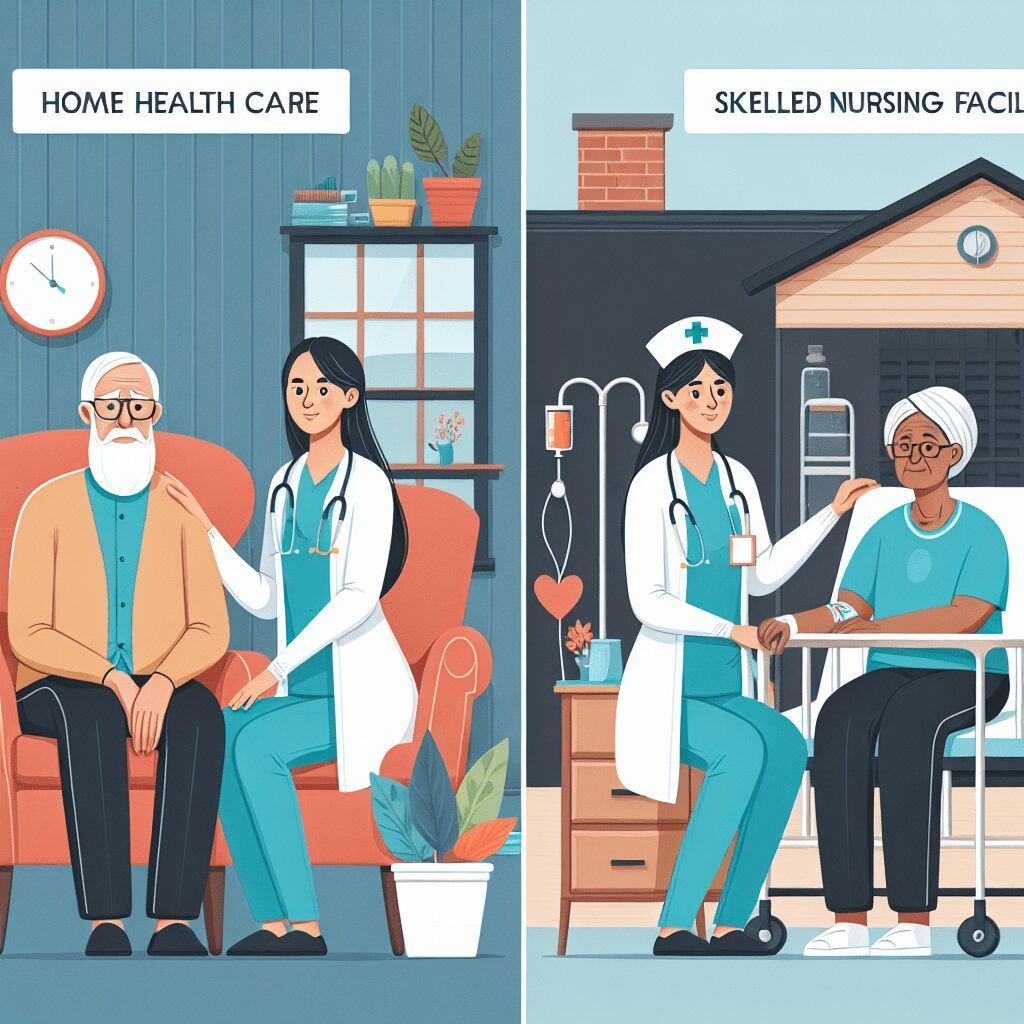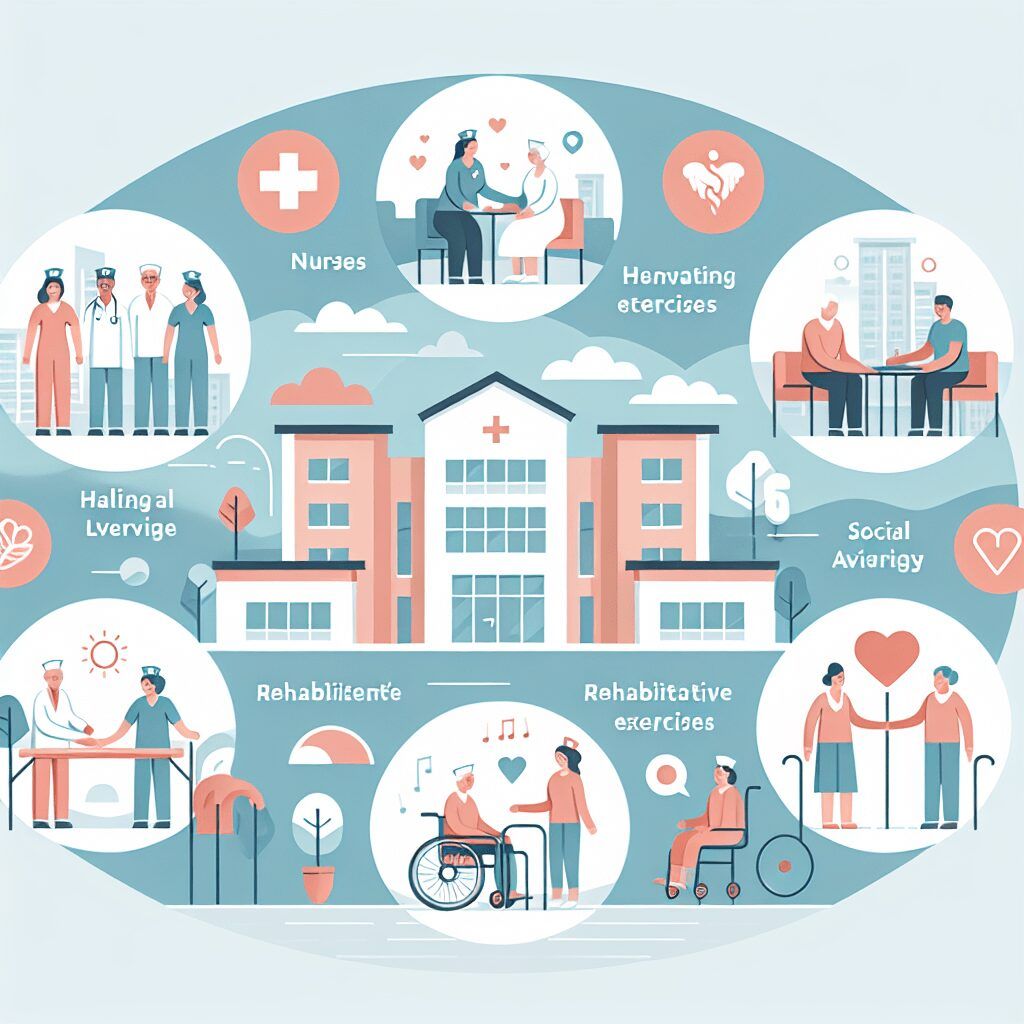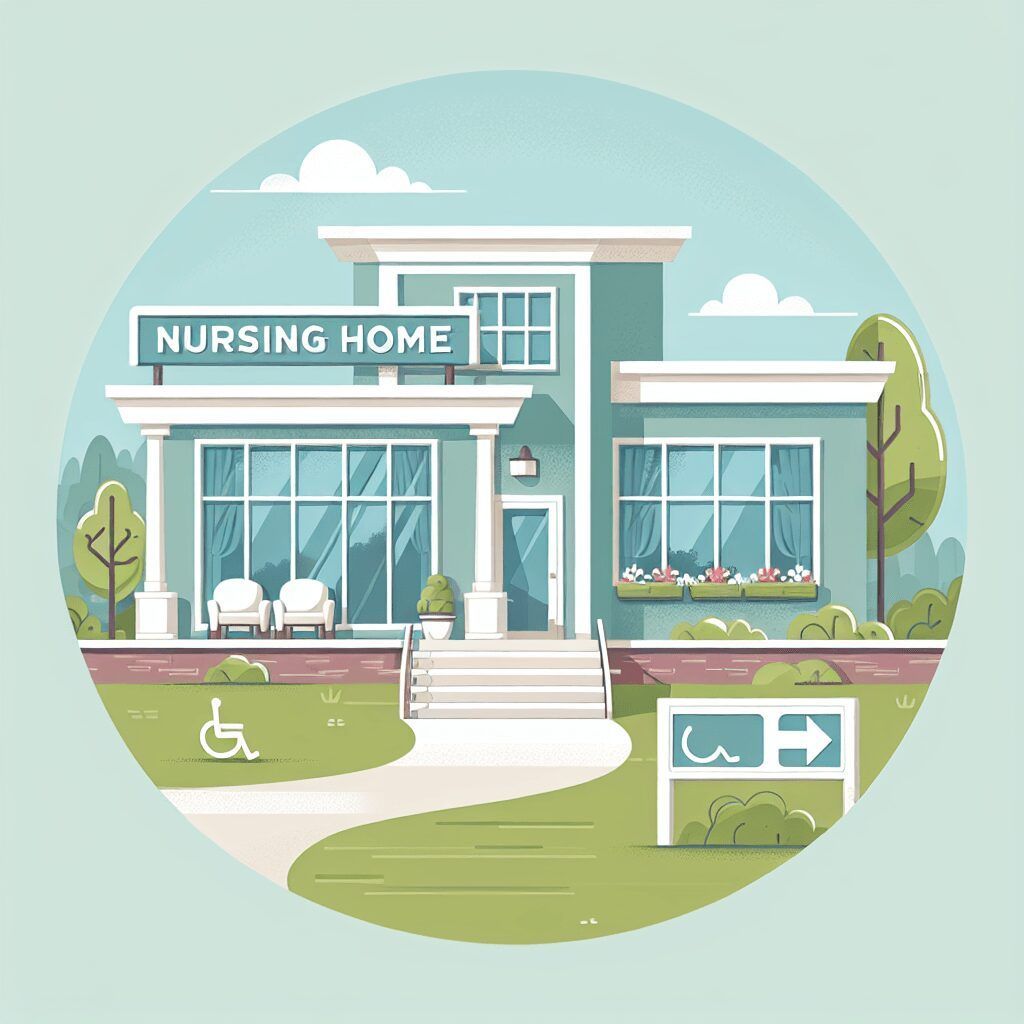Understanding the Meaning of SNF Facilities
Skilled Nursing Facilities (SNFs) play an essential role in healthcare. They provide short or long-term care and rehabilitation services to patients following a hospital stay. Trained medical professionals deliver high-level skilled nursing care to help patients recuperate and regain independence in their daily activities. The main distinction between SNFs and nursing homes lies in the duration of care required. SNFs primarily focus on transitional care, while nursing homes are designed for more permanent residential needs.
What is a Skilled Nursing Facility (SNF)?
Definition and Purpose
A Skilled Nursing Facility in the U.S. provides short—or long-term nursing care and rehabilitation services. These facilities offer 24-hour medical support to patients needing care after a hospital stay.
The purpose of SNFs is to provide skilled nursing care, rehabilitation, and medical treatments to support recovery. Patients receive help with daily activities, medication management, wound care, and therapy.
Admission to an SNF requires skilled services overseen by licensed professionals, a doctor’s order, and a diagnosis needing the facility’s level of care. SNFs aim to offer a safe environment for individuals with care needs that can’t be met at home.
The costs for SNF care vary based on insurance, with Medicare covering up to 100 days, depending on specific requirements.
Qualifications for Admission
Admission to a Skilled Nursing Facility in the U.S. requires meeting specific medical and care-related criteria.
After an illness, surgery, or injury, patients usually need skilled nursing care and rehab services supervised by trained medical professionals.
An SNF aims to offer transitional care to residents recovering and needing help with daily activities.
Patients get evaluated by their doctor or the facility’s medical director to create a personalized care plan.
SNFs provide 24-hour medical support and specialized services like physical therapy, wound care, and speech therapy.
Medicaid, Medicare, or private health insurance might cover short-term stays in SNFs based on the need for skilled services.
Additionally, SNFs are regulated by federal and state standards to ensure quality care and resident safety.
Residents in SNFs get a protective environment with medical and social services to effectively meet their health needs.
Understanding SNF General Services
Medical Care and Rehabilitation Services
Skilled Nursing Facilities (SNFs) offer patients medical care and rehabilitation services. These include therapy, wound care, medication management, and help with daily activities.
SNFs employ nurse practitioners, registered nurses, and therapists to provide care. They must also meet the Centers for Medicare & Medicaid Services certification requirements.
Healthcare professionals in SNFs need advanced training to offer skilled nursing care. They work under the supervision of licensed health professionals.
SNFs have medical equipment for patient care and monitoring of vital signs.
These facilities focus on specialized care to help patients recover and regain their daily activity abilities, making them important in healthcare.
Therapeutic Services
Skilled nursing facilities offer various therapeutic services like physical, occupational, and speech therapy, wound care, medication management, and cardiac or post-stroke rehabilitation. They provide round-the-clock care and specialized services for patients recovering from illnesses, injuries, or surgeries.
The staff at these facilities, including nurse practitioners, registered nurses, speech-language pathologists, and physical therapists, have advanced training and certifications to ensure patients get the required therapeutic care. They focus on creating personalized care plans tailored to each individual’s needs, overseen by the resident’s personal physician or the facility’s medical director.
Skilled nursing facilities also provide a protective environment and additional services like dietary support and recreational therapy to promote recovery, ensure resident well-being, and facilitate a safe transition back to independent living.
Nursing Care
Nursing care in a Skilled Nursing Facility is essential for providing continuous medical help to residents recovering from a hospital stay. Staff, including registered nurses (RNs), licensed practical nurses (LPNs), and physical therapists, offer services like medication management, wound care, and therapy to aid residents’ recovery. The goal is to help residents regain independence in daily activities such as bathing, dressing, and cooking.
In SNFs, the focus is on short-term rehabilitation and medical care after illness, injury, or surgery, differing from nursing homes that offer long-term custodial care. SNFs follow certification requirements ensuring high-quality standards, making them suitable for patients requiring skilled care for recovery.
Skilled nursing staff in SNFs need specialized training and certifications to provide quality care, monitor health conditions, and assist with daily activities. Licensed health professionals’ supervision guarantees residents the necessary support for their medical needs. The expertise and qualifications of the nursing staff are integral to providing effective care in a Skilled Nursing Facility.
Exploring Distinct Part Facilities
Definition and Characteristics
A Skilled Nursing Facility is a center for rehabilitation and medical treatment. It offers skilled nursing care and rehabilitation services to patients.
Patients at SNFs receive 24-hour medical support following a hospital stay for illness, injury, or surgery.
SNFs have medical professionals like nurse practitioners, registered nurses, physical therapists, and speech therapists.
These professionals provide services such as medication management, daily living assistance, meal preparation, wound care, and therapy.
To be admitted to an SNF, patients need skilled services overseen by a medical team and ordered by a doctor.
Coverage for SNF services may be through Medicare, Medicaid, private insurance, or out-of-pocket expenses for long-term care.
The goal of SNFs is to offer a protective environment with medical and social services for high-quality care during patients’ recovery.
Services Offered
At a Skilled Nursing Facility, patients can expect:
-
Skilled nursing care is under supervision by registered nurses, licensed practical nurses, and nurse aides.
-
Therapeutic services like physical therapy, occupational therapy, and speech therapy for recovery.
-
Nursing care focuses on daily activities, wound care, medication management, and daily living assistance.
-
Specialized services such as cardiac and post-stroke rehabilitation.
-
Need for a protective environment and social services.
-
Ancillary services like dietary counseling, pharmaceutical services, and recreational therapy.
SNFs Hospice Services
Overview of Hospice Care in SNFs
Skilled nursing facilities are crucial in providing hospice care to patients requiring additional support following an inpatient hospital stay for illness, injury, or surgery. These facilities offer 24-hour skilled nursing care, rehabilitation services, and a protective environment for individuals whose care needs cannot be met at home or in a residential care setting.
SNFs employ skilled medical professionals who deliver services such as medication management, assistance with daily living activities, meal preparation, wound care, and various therapies, such as physical, occupational, and speech therapy.
Additionally, hospice care in SNFs is provided via an interdisciplinary team that includes doctors, nurses, social workers, and other professionals, ensuring a holistic approach to end-of-life care. Medicare, Medicaid, private health insurance, and long-term care insurance may cover hospice services provided in a skilled nursing facility, helping residents receive quality care without financial burden.
Common Myths about SNF Facilities
Common myths about skilled nursing facilities often revolve around misconceptions about the level of care provided.
Many people believe that SNFs are similar to nursing homes. In reality, they offer higher levels of skilled nursing care, rehabilitation services, and 24-hour medical support.
These myths can impact the community’s perception. It can lead individuals to think that SNFs are solely for long-term care. Instead, they play a vital role in providing temporary, specialized care for patients recovering from illnesses, injuries, or surgeries.
By dispelling these myths and highlighting the distinct services offered by SNFs, the community can better appreciate the crucial role these facilities play in post-hospital care and rehabilitation. This can improve the overall understanding of healthcare options available for individuals in need of skilled nursing services.
Benefits of Long-Term Care in SNFs
Long-term care in skilled nursing facilities benefits individuals by providing around-the-clock skilled nursing care, rehabilitation services, and medical support. This care is for patients needing transitional care after a hospital stay for illness, injury, or surgery.
Residents in SNFs receive care from skilled medical professionals like nurse practitioners, registered nurses, and physical therapists. They offer services such as medication management, wound care, and rehabilitation therapy.
This specialized care helps patients recover from acute conditions and regain independence in daily activities.
-
Receiving long-term care in an SNF offers advantages over other care options for individuals with chronic health conditions.
-
SNFs provide a higher level of specific care than nursing homes and focus on a shorter-term, more intensive approach to rehabilitation and medical treatment.
-
These facilities offer specialized treatments like physical therapy, cardiac rehabilitation, post-stroke recovery, and speech therapy to facilitate faster recovery and better health outcomes.
-
SNFs follow strict certification and licensure requirements to ensure quality care and improved patient outcomes.
-
Residents also benefit from a protective environment and social, dietary, and ancillary services supporting their overall well-being.
Advantages of In-Home Skilled Nursing
Personalized Care in a Familiar Environment
In-home skilled nursing offers a range of benefits that can often surpass those provided by traditional Skilled Nursing Facilities (SNFs). One of the most significant advantages is the ability to receive personalized medical care and assistance within the comfort of one’s own home. This setting allows patients to maintain a sense of independence and familiarity, which can greatly enhance their emotional well-being and overall quality of life. Unlike SNFs, which may have set routines and shared living spaces, in-home skilled nursing provides tailored care schedules and one-on-one attention, ensuring that each patient’s specific medical needs and personal preferences are fully addressed.
Enhanced Independence and Quality of Life
Another significant advantage of in-home skilled nursing is the flexibility it offers. Care schedules can be adjusted to fit the patient’s daily routine, reducing the need for transportation and the associated stress of traveling to and from a facility. This flexibility ensures continuity of care and helps in managing chronic conditions more effectively. Moreover, family members can be more involved in the care process, providing emotional support and practical assistance, which can be incredibly beneficial for the patient’s mental and emotional health.
FAQ
What does SNF stand for?
SNF stands for Skilled Nursing Facility. These facilities provide a higher level of care than traditional nursing homes, offering services such as physical therapy, occupational therapy, and skilled nursing care for patients recovering from illness or injury.
What services do SNF facilities provide?
SNF facilities provide services such as skilled nursing care, rehabilitation therapy, wound care, medication management, and assistance with activities of daily living.
How are SNF facilities different from other types of long-term care facilities?
SNF facilities provide skilled nursing care, while other long-term care facilities, such as assisted living and memory care facilities, focus on personal care and supervision. SNFs also typically offer rehabilitation services like physical therapy and occupational therapy.
Who is eligible to stay at an SNF facility?
Individuals who require skilled nursing care or rehabilitation services may be eligible to stay at an SNF facility. This includes those recovering from surgery, serious illness, or needing long-term care for chronic conditions like Parkinson’s disease or multiple sclerosis.
How can someone find a reputable SNF facility for their loved one?
Look for SNF facilities with good ratings from The Centers for Medicare & Medicaid Services. Visit facilities in person, ask for recommendations from healthcare professionals, and read online reviews.
While ABET Life Home Health & Caregiving does not operate SNF facilities, our in-home care services offer a compassionate and convenient alternative. Experience the benefits of personalized care from skilled professionals in the comfort of your own home. Contact us today to discover how our tailored services can meet your healthcare needs effectively and comfortably.
The post Understanding the Meaning of SNF Facilities first appeared on Home Health & Care Giving Service in Houston, TX.

Whether dealing with chronic illness or needing help recovering a surgery, ABET Life will support you with our focused care — covered by Medicare or other insurance carriers for qualified patients.
USEFUL LINKS
All Rights Reserved | AbetLife, Inc | Terms of Use | Privacy Policy











